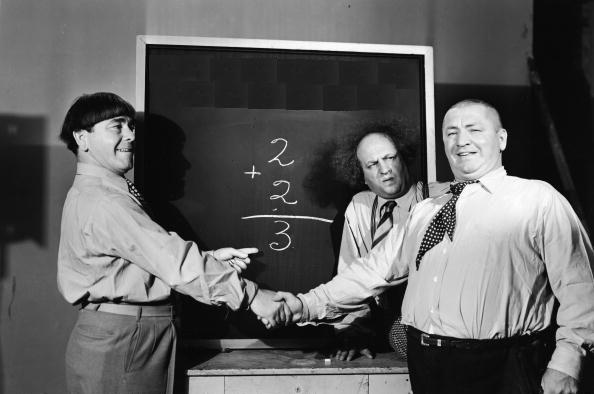A short time ago, a football player from Buffalo forgot to follow the rule for getting a touchback in response to a kickoff. (You’re supposed to put your knee to the ground after catching the ball.) A lot of people have focused on what the officials did next. But what almost no one seems to be noticing is what the officials didn’t do, and in fact, couldn’t do.
What the officials did was rule that, in this one case, the receiver had made it clear that he was ‘giving himself up’, so while he didn’t follow the letter of the rule, he had clearly tried to follow its spirit. So they let him slide, which overturned what was technically a fumble.
What the officials did not do was make up a new rule for how to signal a touchback, which would then be binding on other officials, and on the people who make the rules for the league. Instead, they went on with the game, having made a call, but having set no precedent. And they left it to the people whose job it is to change the rules, when the rules need changing, to do that, at the appropriate time, and in the appropriate forum.
And the most anyone had to say about it was that ‘the NFL is going to be taking a closer look at how kickoffs are fielded from now on’. Which is clearly what needs to happen, and how it should happen.
I just mention this because it seems like a good opportunity to point out that our courts do things in the opposite way. Judges make up new rules on the fly, often having to alter or even reverse the meanings of common words (like ‘not’, ‘and’, ‘or’, ‘if’, ‘all’, ‘infringe’, ‘abridge’, and so on) in order to rationalize those rules. And their new rules are binding, not just on future judges, but on future legislatures as well.
The result, of course, is that we live in a society where the rule of law — in the sense that you write down some rules, and everyone has to follow the rules that are written down — is not even possible in theory.
Am I exaggerating?
Suppose we wanted to prohibit government from being able to punish people for the things they say, no matter what those things are. We might write something like ‘Congress shall make no law abridging freedom of speech’. You’d think that would do it, right?
But as anyone with an internet connection can see, that didn’t work at all. We have more laws abridging speech than most people could even read in a year. And we have those laws because judges have decided that where speech is concerned, ‘no’ means ‘only some’, that ‘abridge’ doesn’t include fining or jailing people when they say the wrong thing’, that sometimes what would seem to any native speaker of English to be ‘speech’ is really something else entirely, and so on.
(You might ask, at this point: Suppose we took Hugo Black’s advice, and phrased it this way: ‘Without deviation, without exception, without any ifs, buts, or whereases, freedom of speech means that you shall not do something to people either for the views they express, or the words they speak or write.’ Should anyone seriously believe that a court with the power to redefine words couldn’t make this mean whatever it wanted to?)
So why do they do this, and more importantly, why do we let them get away with it? Unfortunately, it’s often the case the legislatures, when enacting a law, or bureaucracies, when promulgating a rule, don’t really think the matter through carefully, and end up failing to properly describe the behaviors they’re trying to mandate or prohibit. So judges step in, and, in the words of Antonin Scalia, ‘endure whatever interpretive distortions it takes in order to correct a supposed flaw in the statutory machinery’. The result? This approach
[i]gnores the American people’s decision to give Congress ‘[a]ll legislative Powers’ enumerated in the Constitution (Article 1, Part 1). They made Congress, not this Court, responsible for both making laws and mending them. This court holds only the judicial power — the power to pronounce the law as Congress has enacted it. We lack the prerogative to repair laws that do not work out in practice.
Not that Scalia himself lived up to his rhetoric! He was as guilty as anyone else of what he was criticizing here.
But in principle, he would agree with me, I think, that our courts — and more importantly, our citizens — can learn a lot about what it means to have the rule of law by observing the way our officials handle things during sporting contests. Because those officials actually do what Scalia says judges ought to be doing — making particular calls in particular cases, without setting binding precedents; and when the rules don’t seem to be giving the intended results, leaving those rules to be mended by the appropriate rule-making authority.
